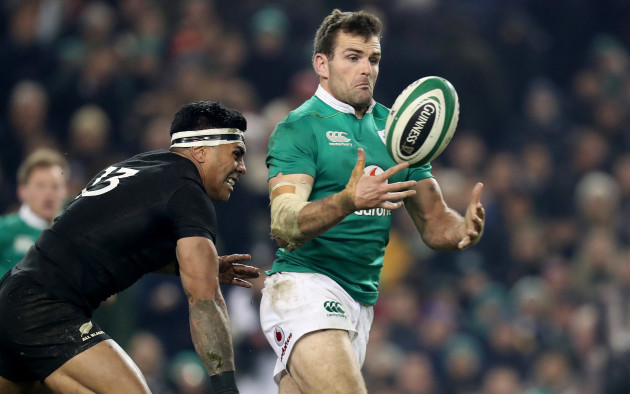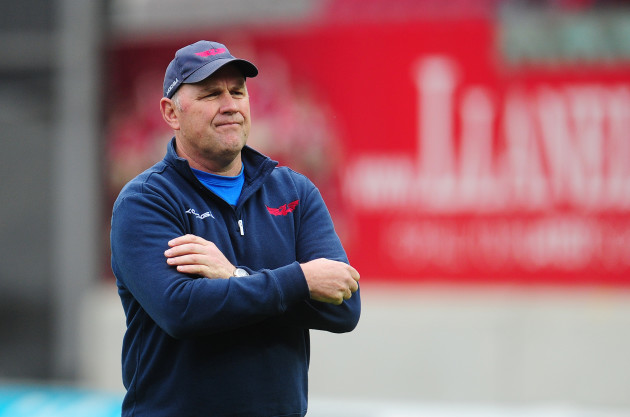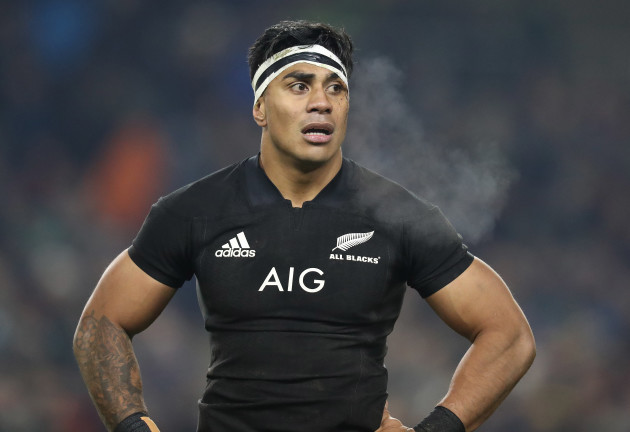WITH RUGBY’S RESIDENCY regulation to be tweaked from the end of 2020 onwards, there has been much applause about World Rugby getting serious and finally looking to end the era of the ‘project player’.
No longer will players be able to qualify to play for a nation based simply on three years of residency, with a five-year period now the minimum requirement.
There has been much comment that this will reduce the numbers of players shifting nations – most often from the Southern Hemisphere to Europe – with an end goal of playing Test rugby for a nation they have no real connection with.
The general view is that those unions who have been exploiting Regulation 8, relating to residency and international rugby, will finally be stymied.
That’s true to a degree, of course, but it will be intriguing to see what really changes. Are we simply set to see players lured abroad at earlier ages?
Getting less attention has been World Rugby’s law change that means international U20 team no longer ‘capture’ players – i.e. tie them to that nation for good – from 1 January 2018, so will the shopping simply be done earlier?
Will the most impressive U20, U19 or U18 players now be targets for rival nations, who could get them into their club system and have him in their Test team by the age of 23 or 24?
Most pressingly, what’s going to happen in the Pacific Islands – where Fiji, Samoa and Tonga have traditionally produced high-quality rugby players who show rich promise at very young ages?
Top 14 sides Clermont and Brive already have formal links there with academy-style set-ups that allow them to get an early sense of the very best talent. While FFR president Bernard Laporte has insisted les Bleus will pick only French players, does a person who has lived in France for more than five years not count as such?
New Zealand is another nation that has lost many players abroad, with the lure of playing Test rugby elsewhere proving difficult to ignore for players whose All Blacks prospects don’t look great.
Jared Payne is a fine example, having joined Ulster on an IRFU contract in 2011, then made his Ireland debut as soon as he was qualified three years later. The centre/fullback is now even going to be a Lion this summer.
“Yeah, it’s in the rules,” is Wayne Pivac’s take on it. “He’ll be accepted [in New Zealand] like any player. He’ll be treated as the opposition, the enemy.”
A New Zealander himself, Pivac is currently head coach of the Scarlets, who have a Kiwi who could end up playing Test rugby for Wales in former Crusaders flyer Johnny McNicholl.
Fellow Pro12 side Leinster will sign James Lowe in time for him to serve only three years of residency to qualify to play for Ireland, and it would be little surprise to see the current Chiefs man do so.
“Johnny McNicholl is probably a similar player,” says Pivac. “He’s done very well in New Zealand rugby, but for whatever reason thinks he’s not going to be an All Black, in that there are a lot of good players around him and ahead of him.
“When do you make the move? Payne’s a classic example, isn’t he?
“Other New Zealanders see guys like that playing international rugby and think, ‘Well, if I can’t be an All Black, the next best thing is playing for another nation.’”
Of course, many will argue that New Zealand have been as bad as anyone for pilfering players from other nations, with the All Blacks having featured and still featuring several players from the Pacific Islands.
There is a difference, in that some Pacific Island-native rugby players move across to New Zealand at earlier ages, with many gaining scholarships into schools rugby.
The numbers of players going directly from Fiji, Samoa and Tonga and into the All Blacks squad three years later under residency regulation have often been exaggerated, and the truth is that players from these nations are now popping up everywhere.
That may only increase, with other clubs and unions possibly following the examples of Clermont and Brive, attempting to take talent from the Pacific Islands earlier.
Pivac, a former head coach of North Harbour and Auckland, was actually in charge of the Fiji national team for three years and he has seen the other side of this debate – the sheer scale of the opportunity provided to young Pacific Islanders by moving abroad.
“When you’ve lived in the islands and you see, outside of the resorts, it’s pretty much third-world,” says Pivac.
“My experience of coaching and living for three years in the islands, if you get a young fella who’s got the opportunity to make a living and support his whole family back home on one rugby contract then, under the rules, you’ve got to do it.
“For the Pacific Island boys, to me it’s a little different to a New Zealander who’s living comfortably in New Zealand and doing very well for himself and coming out to Ireland or Wales.
“I think it’s a little bit different when you go and see the environment they’ve come from and what that change can do for them.
“Malakai Fekitoa, I got him straight out of school [to Auckland in 2012] and to see, he was living in his car at the time, you know, out of his car and he’s now a well, well-paid player.
“If he came up to the Northern Hemisphere he’d be on huge money. He supports 15 people back on the island, you know, brothers and sisters – it’s a massive family, so that opportunity, I can understand why they would do it.
“So I think there’s a slight difference, but there is a huge debate.”
Fekitoa is a fine example. In 2009, he arrived in New Zealand from Tonga as a 17-year-old with extremely limited English, leaving his entire family behind.
He shone for Wesley College in Auckland on a scholarship, starred for Auckland under Pivac, excelled for the Highlanders and then earned All Blacks honours in 2014 – having spent three years post-school in the country to quality under the residency regulation.
There are many stories around the rugby world like Fekitoa’s.
The sheer lack of resource provided to the Pacific Island nations is an issue, but Pivac can’t see the flow of Pacific Islanders into rugby in New Zealand, Europe, and elsewhere stopping any time soon.
For many, it is the only way they can provide for their families.
“You’ve pretty much got 95% of the money in the Islands with 5% of the population. To see Test rugby players you coach in Fiji, they see a second-hand pair of running shoes lying around, they’re gone,” says Pivac. “They don’t stay out there for too long, you know.
“When you see the sort of money that some Test players are on, the guys living in Fiji – 50 Fijian dollars a day to be in camp, it’s a pittance. Yet they’re asked to play against Ireland and Wales and these other sides.
“So it’s not a level playing field in terms of the financial side of it, for the players. When you get an opportunity to play in the Northern Hemisphere, you know, they’re mad if they don’t.”
Watch this space.
The42 is on Instagram! Tap the button below on your phone to follow us!




